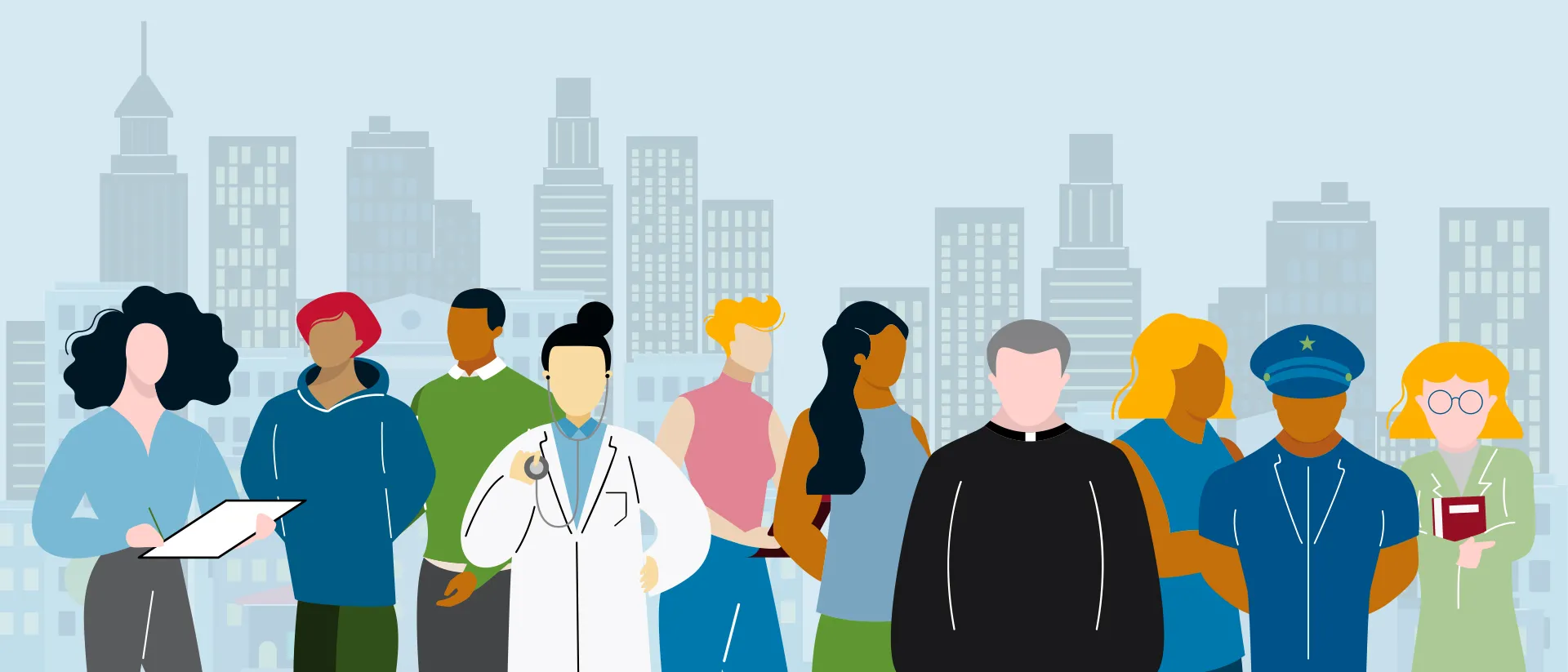The Center for Prevention Programs and Partnerships’ (CP3’s) Prevention Forum webinars showcase how targeted violence and terrorism are preventable by highlighting prevention successes and best practices. Audience members will gain an understanding of how they can play a role in targeted violence and terrorism prevention in their communities.
During 2024, CP3 held six successful Prevention Forums with expert panelists showcasing how targeted violence and terrorism are preventable. In total, about 2,584 people attended and learned how they can play a role in stopping violence in their communities.
We would like to thank all our panelists and attendees for six outstanding Prevention Forums. You've shown that targeted violence and terrorism are preventable, and everyone has a role to play. Stay tuned for more information about our 2025 Prevention Forum series.
Check back here regularly for updated details.
Creating a Culture of Violence Prevention through Civic Engagement
This CP3 Prevention Forum focused on the vital role of civic engagement in preventing targeted violence and terrorism. Panelists discussed how to engage communities in civic participation, such as making activities fun and low-effort and identifying credible messengers; the impact of civic engagement on resilience; and how civic education and engagement foster social cohesion by bringing together those with diverse perspectives and how they are effective tools for long-term targeted violence and terrorism prevention.
Creating a Culture of Violence Prevention in K-12 Schools
This CP3 Prevention Forum featured expert panelists who discussed how they work to cultivate positive, safe, supportive, and inclusive learning environments. This Forum emphasized strategies to implement and enhance bystander reporting programs and where to look for resources and support.
Cities as Partners in Prevention
This CP3 Prevention Forum was coordinated alongside the Strong Cities Network and the National League of Cities. Panelists discussed how targeted violence and terrorism prevention efforts are implemented in cities, using Highland Park plus surrounding Illinois cities as examples of prevention and resilience.
Law Enforcement’s Role in Prevention
This CP3 Prevention Forum discussed what targeted violence and terrorism prevention look like in the law enforcement and public safety community, focusing on the role of law enforcement beyond investigation and arrest, and how to support prevention in practice. The Forum emphasized the components that make up the public health-informed approach in law enforcement, including bystander awareness, behavioral health intervention, threat assessment and management, and crisis response.
The Role of the Mental Wellness Field
This CP3 Prevention Forum discussed the role of mental wellness practitioners in targeted violence and terrorism prevention. The Forum emphasized that the mental wellness field has a critical role to play in targeted violence and terrorism prevention, and prevention is more than crisis intervention — it includes strengthening prevention by creating healthy environments and a culture of care. Panelists shared that the mental wellness field has a long way to go in implementing targeted violence and terrorism prevention into mental wellness norms.
A Public Health-Informed Approach
Our first CP3 Prevention Forum took a deep dive into the public health-informed approach with a focus on how targeted violence is preventable, and everyone has a role to play in prevention. CP3 discussed how important it is to work to strengthen protective factors in your community; how communities across the country have implemented various programs and practices to prevent targeted violence and terrorism; and how the public health-informed approach is broad, and anyone can be part of the solution.
Contact Us
To learn more about our initiatives, participate in our programs, connect with us, or for general inquiries, please visit our Contact Us page.
CP3 prioritizes privacy, civil rights, and civil liberties within DHS legal authorities and policy. CP3 works to ensure that its programs include fundamental constitutional and legal protections. CP3 does not engage in widespread data collection or activities like law enforcement investigations or intelligence gathering. CP3 does not engage in censorship or encourage or facilitate any censorship. Government censorship of viewpoints not only infringes on individuals’ constitutional rights, but it is also an ineffective tactic to prevent targeted violence and terrorism.

